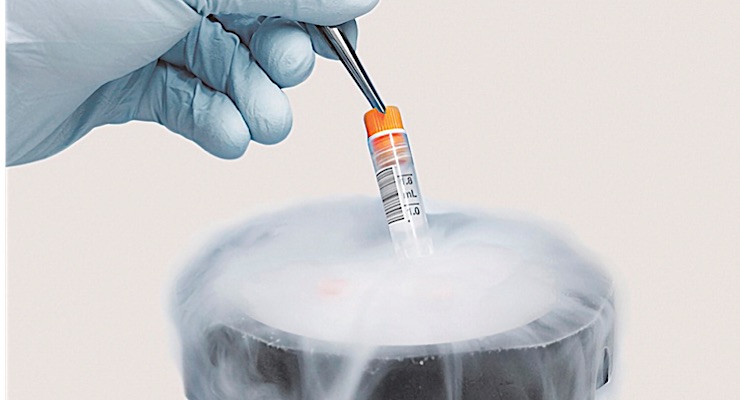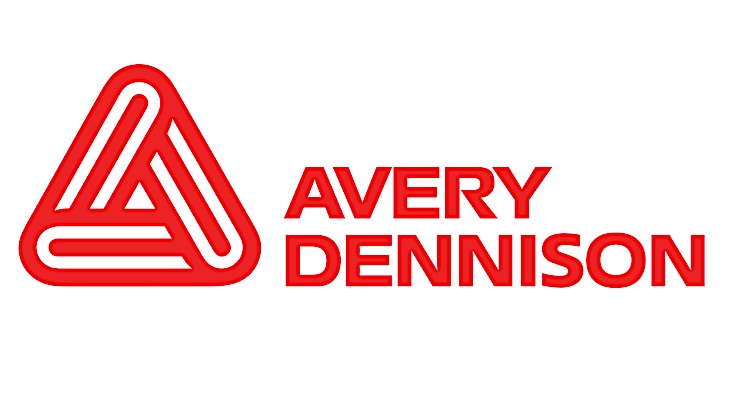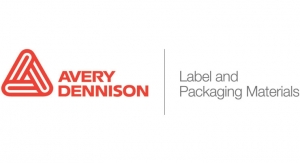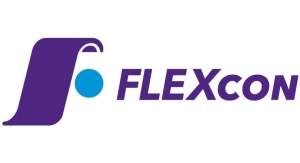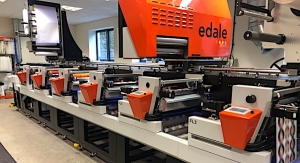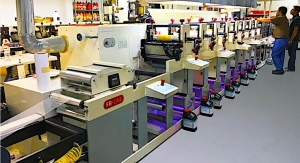08.27.21
Healthcare is top of mind these days for consumers. Be it pharmaceutical or OTC – or a host of products in between – health and wellness has been a significant priority for consumers and brands alike.
According to a 2019 report by The Freedonia Group, demand for pharmaceutical packaging products in North America is projected to rise 5% annually through 2023. The Covid-19 pandemic has only accelerated this trending space. There are challenges, though – and they are specifically centered around the supply chain. The World Health Organization (WHO) states that up to 50% of vaccines are wasted globally every year due to improper temperature management in the supply chain. Similarly, according to IQVIA, the biopharma industry loses $35 billion annually as a result of temperature-control failures across supply chains.
Avery Dennison, a material and substrate supplier based in Mentor, OH, has seen strong growth for pharmaceutical labels over the last 18 months in response to the Covid-19 pandemic and corresponding effort of the pharmaceutical industry to develop vaccines and other therapies. The company has also seen two other prominent trends: the growth of biologic drugs and the importance of track-and-trace capabilities.
“Biological products often represent the cutting-edge of biomedical research and, in time, may offer the most effective means to treat a variety of medical illnesses and conditions that presently have no other treatments available,” explains Cory Keller, senior product manager – pharmaceuticals, Avery Dennison. “Most large pharmaceutical companies are now spending 40-50% – or more – of their R&D budget on biopharmaceuticals. The industry's migration to these new medicines injects tremendous complexity into the supply chain as they must be handled within specific condition tolerances such as cold chain, controlled room temperature (CRT), and frozen. Failure to maintain appropriate conditions at any point in the supply chain can harm the efficacy of the drug, result in the loss of a shipment, and put patients at risk.”
Track-and-trace labeling, meanwhile, is so critical because the counterfeit drug market is the largest fraudulent market in the world. It is valued at roughly $200 billion and results in at least one million deaths per year.
“Many pharmaceutical brands consider non-authentic drugs to be the biggest threat to their brand,” says Keller. “In 2018, the Protenus’ report found 47.2 million doses lost due to healthcare employee misuse and theft. Healthcare organizations lost nearly $454 million because of clinical drug diversions.”
According to Keller, the Drug Quality and Security Act was enacted by Congress on November 27, 2013 to address these concerns. Title II of DQSA, The Drug Supply Chain Security Act, once fully implemented in November 2023, will require all members of the supply chain to use an electronic, interoperable system that tracks a drug at the unit level throughout the supply chain until it reaches the patient. This will provide protection against exposure to drugs that may be counterfeit, stolen, contaminated, or otherwise harmful. The product identifier must be a standardized graphic in both human-readable format and on a machine-readable data carrier in a 2D data matrix barcode containing the National Drug Code (NDC) plus a unique serial number, lot number, and an expiration date.
By adding track-and-trace capabilities to pharmaceutical and other healthcare products, the label can help better document and communicate regulatory compliance and faster, more precise recalls. RFID and intelligent labeling can be the best way to accomplish this feat. “Track-and-trace can help monitor temperature and other conditions to ensure drug quality with passive RFID sensors,” comments Keller. “And RFID gives drug makers and pharmacists more effective ways of communicating about correct product use, enabling improved patient compliance.”
Avery Dennison has developed a wide range of portfolios to meet demand across the healthcare landscape. The company’s Pharma Security Solution Portfolio features products that overtly show a product has been tampered with. These include fiber tears, sharp tears, frangible and voids. Plus, the Cold Chain and Cryogenic Portfolio can help ensure clear identification of biological materials from collection to storage, transportation and delivery.
“Products in this portfolio feature good adhesion to substrates, including PP, glass, PVC and steel/aluminum, as well as print compatibility with UV flexo and thermal transfer,” states Keller. “Good conformability for small diameter containers is also important, as is the ability to withstand multiple freeze-thaw cycles. Suitability for autoclave sterilization is critical, as well.”
To meet demand for smart solutions, Avery Dennison’s Pharma Intelligent Label Portfolio consists of RFID inlays to create intelligent labels for multiple use cases. These include track-and-trace (consumer safety, authentication and anti-counterfeiting), inventory management (Improved efficiency and more effective product recalls), and consumer engagement (virtual pharmacist, dosage tracking and more).
In addition to enhanced product performance, pharmaceutical companies often desire label materials to come with assurances of component change minimization and robust change notification due to the time and cost associated with gaining FDA approval for new drug launches, which includes the drug packaging. “Products in Avery Dennison’s pharma portfolio provide such assurances with change notification up to 12 months,” adds Keller. “We also maintain a Drug Master File Listing with FDA – which helps end users with FDA approvals of the labels – specifically by providing formulation information to determine if the adhesive is safe to use in the application.”
Avery Dennison has also engineered products in the healthcare arena that meet current demands for sustainability. In 2018, a survey conducted across four Mayo Clinic locations across the United States found that single-use plastics made up at least 20% of medical waste generated in US hospitals; 57% of those surveyed didn’t know which items in operating theatres could be recycled, 39% said they either sometimes or never recycled, and that 48% had “a lack of knowledge” about recycling.
According to a 2019 report by The Freedonia Group, demand for pharmaceutical packaging products in North America is projected to rise 5% annually through 2023. The Covid-19 pandemic has only accelerated this trending space. There are challenges, though – and they are specifically centered around the supply chain. The World Health Organization (WHO) states that up to 50% of vaccines are wasted globally every year due to improper temperature management in the supply chain. Similarly, according to IQVIA, the biopharma industry loses $35 billion annually as a result of temperature-control failures across supply chains.
Avery Dennison, a material and substrate supplier based in Mentor, OH, has seen strong growth for pharmaceutical labels over the last 18 months in response to the Covid-19 pandemic and corresponding effort of the pharmaceutical industry to develop vaccines and other therapies. The company has also seen two other prominent trends: the growth of biologic drugs and the importance of track-and-trace capabilities.
“Biological products often represent the cutting-edge of biomedical research and, in time, may offer the most effective means to treat a variety of medical illnesses and conditions that presently have no other treatments available,” explains Cory Keller, senior product manager – pharmaceuticals, Avery Dennison. “Most large pharmaceutical companies are now spending 40-50% – or more – of their R&D budget on biopharmaceuticals. The industry's migration to these new medicines injects tremendous complexity into the supply chain as they must be handled within specific condition tolerances such as cold chain, controlled room temperature (CRT), and frozen. Failure to maintain appropriate conditions at any point in the supply chain can harm the efficacy of the drug, result in the loss of a shipment, and put patients at risk.”
Track-and-trace labeling, meanwhile, is so critical because the counterfeit drug market is the largest fraudulent market in the world. It is valued at roughly $200 billion and results in at least one million deaths per year.
“Many pharmaceutical brands consider non-authentic drugs to be the biggest threat to their brand,” says Keller. “In 2018, the Protenus’ report found 47.2 million doses lost due to healthcare employee misuse and theft. Healthcare organizations lost nearly $454 million because of clinical drug diversions.”
According to Keller, the Drug Quality and Security Act was enacted by Congress on November 27, 2013 to address these concerns. Title II of DQSA, The Drug Supply Chain Security Act, once fully implemented in November 2023, will require all members of the supply chain to use an electronic, interoperable system that tracks a drug at the unit level throughout the supply chain until it reaches the patient. This will provide protection against exposure to drugs that may be counterfeit, stolen, contaminated, or otherwise harmful. The product identifier must be a standardized graphic in both human-readable format and on a machine-readable data carrier in a 2D data matrix barcode containing the National Drug Code (NDC) plus a unique serial number, lot number, and an expiration date.
By adding track-and-trace capabilities to pharmaceutical and other healthcare products, the label can help better document and communicate regulatory compliance and faster, more precise recalls. RFID and intelligent labeling can be the best way to accomplish this feat. “Track-and-trace can help monitor temperature and other conditions to ensure drug quality with passive RFID sensors,” comments Keller. “And RFID gives drug makers and pharmacists more effective ways of communicating about correct product use, enabling improved patient compliance.”
Avery Dennison has developed a wide range of portfolios to meet demand across the healthcare landscape. The company’s Pharma Security Solution Portfolio features products that overtly show a product has been tampered with. These include fiber tears, sharp tears, frangible and voids. Plus, the Cold Chain and Cryogenic Portfolio can help ensure clear identification of biological materials from collection to storage, transportation and delivery.
“Products in this portfolio feature good adhesion to substrates, including PP, glass, PVC and steel/aluminum, as well as print compatibility with UV flexo and thermal transfer,” states Keller. “Good conformability for small diameter containers is also important, as is the ability to withstand multiple freeze-thaw cycles. Suitability for autoclave sterilization is critical, as well.”
To meet demand for smart solutions, Avery Dennison’s Pharma Intelligent Label Portfolio consists of RFID inlays to create intelligent labels for multiple use cases. These include track-and-trace (consumer safety, authentication and anti-counterfeiting), inventory management (Improved efficiency and more effective product recalls), and consumer engagement (virtual pharmacist, dosage tracking and more).
In addition to enhanced product performance, pharmaceutical companies often desire label materials to come with assurances of component change minimization and robust change notification due to the time and cost associated with gaining FDA approval for new drug launches, which includes the drug packaging. “Products in Avery Dennison’s pharma portfolio provide such assurances with change notification up to 12 months,” adds Keller. “We also maintain a Drug Master File Listing with FDA – which helps end users with FDA approvals of the labels – specifically by providing formulation information to determine if the adhesive is safe to use in the application.”
Avery Dennison has also engineered products in the healthcare arena that meet current demands for sustainability. In 2018, a survey conducted across four Mayo Clinic locations across the United States found that single-use plastics made up at least 20% of medical waste generated in US hospitals; 57% of those surveyed didn’t know which items in operating theatres could be recycled, 39% said they either sometimes or never recycled, and that 48% had “a lack of knowledge” about recycling.

